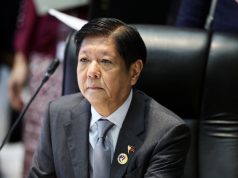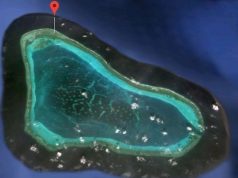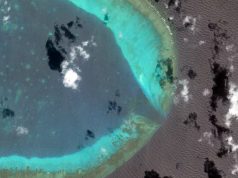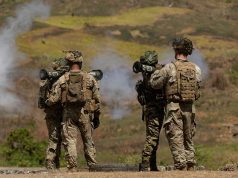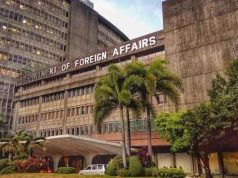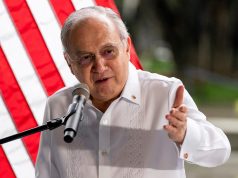
SINGAPORE — The Shangri-La Dialogue summit began on Friday with the U.S. and China defense chiefs holding their first face-to-face meeting in two years and the Philippines’ president set to give a speech expected to touch on sensitive South China Sea claims.
The fraught U.S.-China relationship is expected to loom over Asia’s top security meeting, as are the wars in Ukraine and Gaza, and the South China Sea tensions.
U.S. Defense Secretary Lloyd Austin arrived in Singapore early on Friday. He went into a meeting with China’s defense minister, Dong Jun, in the afternoon that was to discuss contentious issues such as Taiwan and the South China Sea, but also the importance of keeping communications open, Pentagon officials said.
READ: In Asia, Pentagon chief Austin seeks to reassure allies and cool China tensions
Austin is scheduled to deliver a speech at the forum on Saturday; Dong will speak on Sunday.
“China believes that high level China-U.S. strategic military communications helps stabilize military to military relations; China maintains an open attitude towards this,” Chinese defense ministry spokesperson Wu Qian said on Thursday.
Friday night, however, the spotlight will be on Philippine President Ferdinand R. Marcos Jr, who is expected to discuss the legal and geopolitical position of the Philippines on the South China Sea and note the importance of the waterway to global trade.
China claims sovereignty over the shoals and almost all of the South China Sea, including parts claimed by the Philippines, Brunei, Malaysia, Taiwan and Vietnam, despite a 2016 ruling by the Hague-based Permanent Court of Arbitration that found Beijing’s sweeping claims have no legal basis.
Dong and Austin are likely to discuss those issues, as well as Taiwan. Austin will reiterate the United States’ longstanding “One China” policy but also bring up China’s military activities near Taiwan, which recently inaugurated its new president, Lai Ching-te, the Pentagon officials said.
Taiwan’s Defense Minister Wellington Koo told reporters in Taipei on Friday that increased tensions around the democratically governed island claimed by China as its own territory would diminish if Beijing’s military drills ceased.
“If China stops its provocation and intimidation then peace and stability can be maintained,” he said.
The region has seen a sharp uptick in such exercises in recent years, according to a report by the London-based International Institute of Strategic Studies (IISS) released on Friday.
Although both the United States and China have significantly increased the volume of military exercises across Asia, Beijing’s drills still lag in scale and complexity, the study found.
The security forum, in its 21st iteration, is held every year in Singapore by IISS, gathering military and political leaders to discuss security issues. It ends on June 2.
—Reporting by Idrees Ali and Xinghui Kok in Singapore and Ben Blanchard in Taipei; Writing by Gerry Doyle; Editing by Jamie Freed and Raju Gopalakrishnan
RELATED: China’s defense ministry condemns US missile deployment in Philippines




